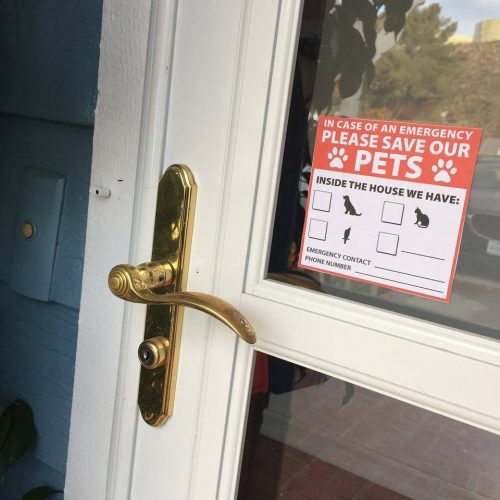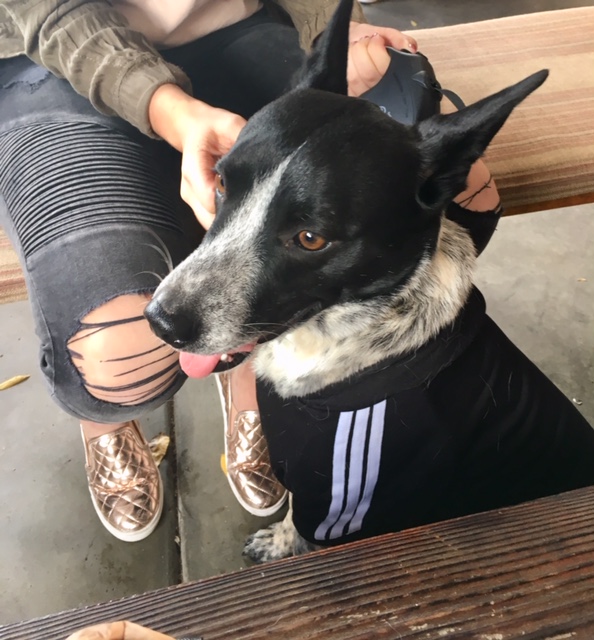Emergency prep and your dog

We all know bad things can happen fast.
Phoenix is far away from Tornado Alley but we aren’t immune from floods, fires and other emergencies. Electric outage anyone?
September is the month dedicated for Emergency Preparedness and it is a good time to figure out what to do with your dog in an emergency. Here’s some tips:
Get a rescue alert sticker
This easy-to-use sticker will let firefighters, paramedics know that pets are inside your home. Get your stickers here. Or here. (Or the next time you see me, ask. I have some!)
Figure out your dog’s safe haven before an emergency
Everyday emergencies — medical crises — happen, too. Before anything happens, figure out who you can trust with your housekey and your dog. Make sure this person knows your dog’s feeding and medication times and habits incase you aren’t able to make it home. Other dog emergency-preparedness tips:
- If you use a pet-sitting service, find out if they can help in case of an emergency.
- Contact hotels and motels outside your area to find out if they accept dogs. Ask about any restrictions on number or size and if they would change policies in case of an emergency. This is a really handy list to have if the power or the AC goes out.
- Ask friends or relatives outside your neighborhood if they would shelter you and your pets—or just your pets—if necessary.
- Call ahead to see if emergency shelters will take your dog. The American Red Cross, for example, doesn’t take pets, except for service animals.
Prepare dog emergency supplies and traveling kits
- Keep your dog’s essential supplies in sturdy containers that can be carried (a duffle bag or covered trash containers, for example). Checklist of pet emergency-preparedness kit.
- Make sure all pets wear collars and tags with up-to-date identification information. Your dog’s ID tag should contain her name, telephone number and any urgent medical needs. Be sure to also write your pet’s name, your name and contact information on your pet’s carrier.
- Get your dog microchipped.
If you evacuate, take the dog.
Rule number one: If it isn’t safe for you, it isn’t safe for your pets. You have no way of knowing how long you’ll be kept out of the area, and you may not be able—or allowed—to go back for your pets. Dogs left behind in a disaster can easily be injured, lost or killed.
Stay safe everyone!






